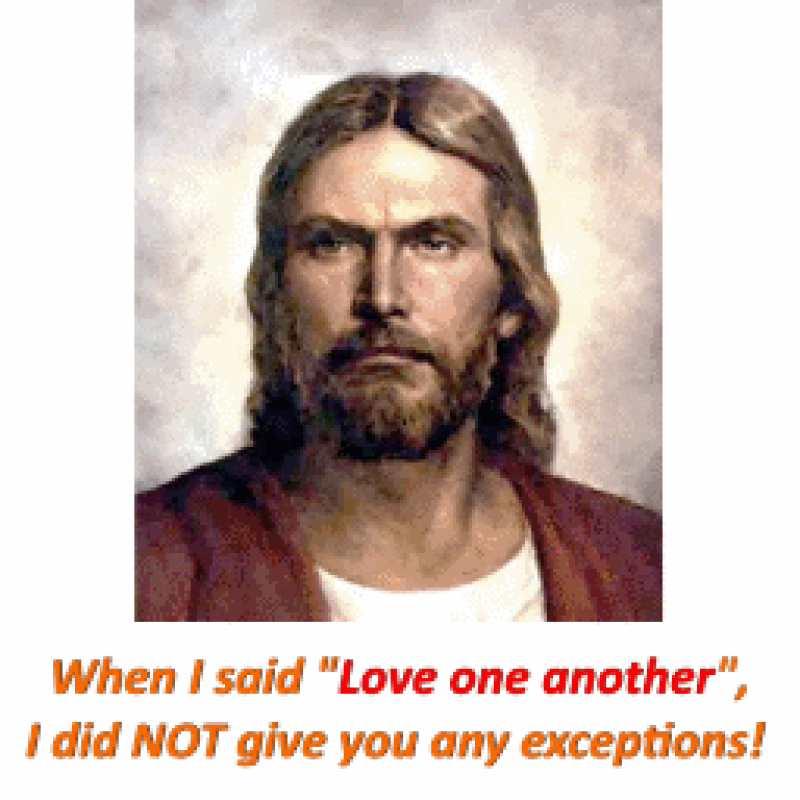What If Christianity Looked More Like Jesus and Less Like Paul (Or Moses)?


My friend asked a question today : “Do you think there’s a new form of Christianity quietly forming?”

Here’s why that’s a good thing…
What I see happening is more Christians learning to embrace Jesus for His actual teachings from the Sermon on the Mount, which include loving God, loving others, showing mercy, forgiving quickly, sharing freely, and embracing those who are not like us.
This shift is also one that veers away from things like tribalism, legalism, division over doctrine, fear of others and a need to control people.
In other words: I believe we’re starting to see a movement that veers away from Paul and Moses and nearer to the heart of Christ.
This is a good thing. A very, very good thing.
It’s always bothered me that those who take the name “Christian” have almost never really been very “Christ-like” in their behavior or attitudes or lifestyle.
Instead, I’ve been disheartened to see “Christians” who look very little like Christ.
Dallas Willard used to call these “Vampire Christians” because, as he put it, they only wanted enough of Jesus’s blood to save them from hell, but had no intentions of actually following Jesus or putting His words into daily practice.
We need less “Vampire Christians” in our world today and more “Jesus-lovers.”
The good news is, this is a growing trend in America today. We see more young people abandoning the mainstream Christian church in favor of more authentic, simple, tangible expressions of Christlike community. Some meet in bars, or in homes, or in coffee shops, or even online. In my experience, these younger believers really don’t care what you believe as much as they care that you’re honest, you love others, and you’re trying to know God better by paying attention to what Jesus revealed to us about who the Father is and what the Father is like.
In our own house church community, this has been very liberating. We come together to meet with Jesus, not just have a meeting about Jesus. We focus on Jesus. We talk to Jesus. We listen to Jesus. We do our best to put the words of Jesus into practice. We help one another to follow Jesus. We encourage one another and support one another without trying to fix one another.
It’s glorious.
And I see that many others are starting to seek out this kind of community and to let go of all the religious baggage that others have tried to place between Jesus and those who want to know Him better.
Honestly, one huge component of this new spiritual renaissance of Jesus-following has been thanks to the internet. Now, like no other time in history, are people regularly exposed to new ways of thinking, alternative ways of seeing, and better ways of being connected to Christ, and to one another, without all the fear and control that usually accompanies religious movements.
People who just want Jesus are finding that it’s easier than ever to have that connection with Jesus apart from the top-down, hierarchical, denominational control systems that prevent us from asking questions, embracing mystery, and finding common ground with people who happen to think differently.
Personally, I’ve grown by connecting online with people like Brad Jersak, Brian Zahnd, Greg Boyd, Bruxy Cavey, David Bentley-Hart, Peter Enns, Derek Flood, Mathew Distefano, Richard Murray, Steve Kline, Chuck McKnight and others.
I’ve also really enjoyed hearing fresh new voices like Seth Price [ CanISayThisAtChurch? Podcast ], Brandon Andress [ OutsideTheWalls Podcast ], Jon Scott [ Holy Heretics Podcast ], Peter Rollo [ Rival Nations ], Peter Enns [ TheBibleForNormalPeople Podcast ] and many, many others who are giving a voice, and a platform, for these kinds of Jesus-lovers to share their ideas and help set people free from fear and control.
The movement is growing. People are throwing off the shackles of dead mainstream religion and running after life-giving relationships with Jesus, and they’re finding more people just like them who only want more of Jesus.
How beautiful is it to see people letting go of their fears? How glorious is it to see people accepting their identity in Christ? How liberating is it to see people from different backgrounds genuinely love and embrace one another as friends? How amazing is it to meet people who aren’t afraid to love, or to be loved?
Can you imagine loving people more than you love doctrine?
Can you imagine serving people more than condemning people?
Can you imagine admitting you might be wrong more than you insist on being right?
Can you imagine abandoning the false security of certainty for the sincere wonder and awe of the mystery of Christ?
This is a more Christlike Christianity.
The end result will be this: A world where more people are free to love others regardless of their race, creed, culture, denomination, religion, sexual orientation, political affiliation, or anything else.
Almost no one should be against such a thing, but those who are most against it are those who most proudly wear the name of “Christian,” and that’s not very Christ-like.
Is it?


I have no way of knowing whether Rev Giles is right... but it would be very good news, and we need some of that nowadays...